On 1 August 2018, an LGBT “Equality March” three thousand strong was moving down Sienkiewicz Street in Płock, Poland. Then a fifteen-year-old boy stepped into its path. He was slight, unarmed except for a rosary and a wooden crucifix. The crowd slowed. Then it stopped.
In that instant, Jakub Baryła became the image Europe didn’t know it still had in her: a child standing where men had fallen, refusing to cede the public square to Caesar.
Baryła wasn’t playing at theatrics. On his lips was the name of Fr. Ignacy Skorupka, the army chaplain who died in August 1920 leading a rosary procession against Bolshevik bayonets. “History repeats,” Jakub told the throng. “I am here, Father, in your place.” The rainbow flags read it as an odd relic of the past. Jakub read it as duty.
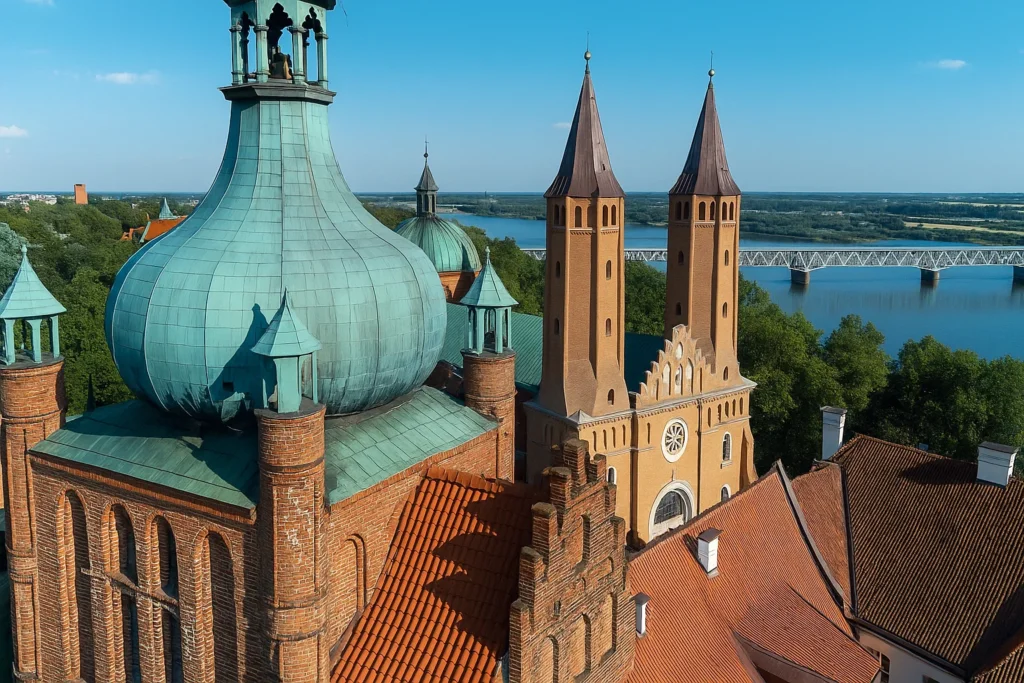
The Battle After the Battle
Accolades came overnight—and so did reprisal. Within two days OMZRiK, Poland’s Soros-patterned thought police, filed a complaint urging the Płock District Court to investigate “potential psychological neglect” in the Baryła home. Translation: Was a boy standing for the faith proof his parents were dangerous fundamentalists?
By September a state-appointed curator was at the family’s door. She toured bedrooms, questioned neighbors, examined the crucifix over the dining table. The transcript is bureaucratic dust—except for one line: “Subject exhibits strong personal devotional practice unconnected with any parental compulsion.” Three hours later the curtain fell. No crime. No coercion. Just conviction.
On 29 October 2019, Judge Małgorzata Urbańska dismissed the case in full. The court’s words are worth framing: “No grounds to restrict parental authority.” The NGO had come to intimidate; the law gave the only answer any free society should: No.
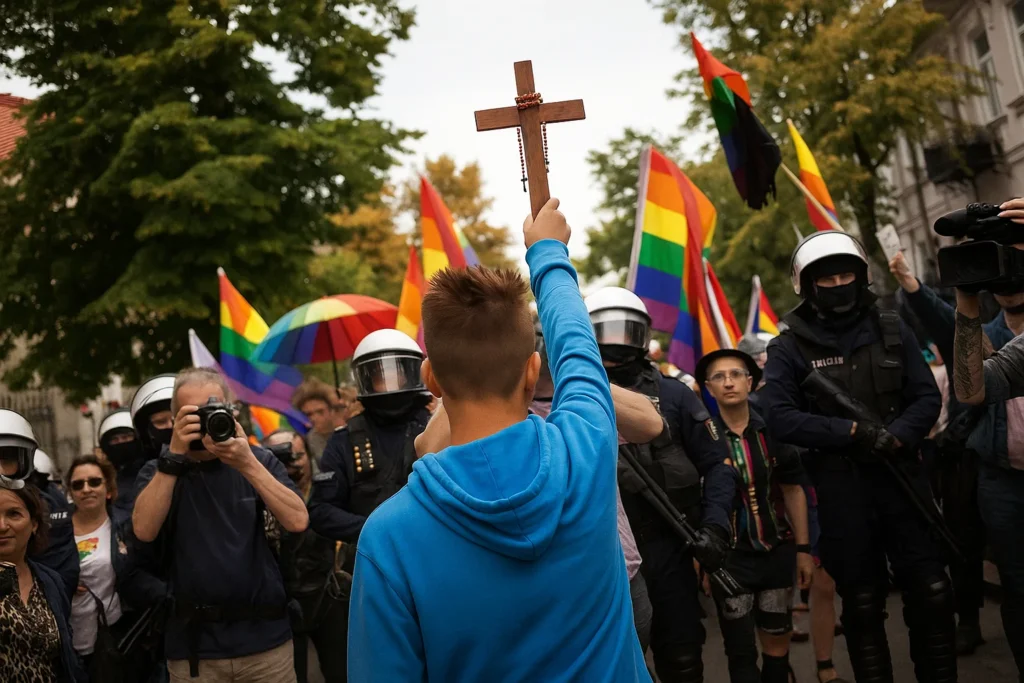
Faith Forged, Not Dimmed
Jakub did not fade from public life. He joined Krzysztof Bosak’s 2020 presidential campaign, canvassed for Konfederacja in 2023, and told Gazeta Polska he intends “to offer myself to the SSPX” once of age. The Traditional Latin Mass, he says, was the anvil on which his resolve was forged.
In 2021, he helped reroute St. Bartholomew’s Corpus Christi procession so that it passed—peacefully but deliberately—near another Equality March. Again, brass bands stopped. Again, the crucifix rose. Again, history repeated.
The press noticed, but the language changed. Outlets that in 2018 had called him an “altar-boy turned nationalist icon” were by 2021 labeling him an “alt-right teen politician.” Same boy, same crucifix—only older, and harder to dismiss.
Where He Is Now
Jakub has stayed clear of new courtroom battles, remained close to the SSPX, and is now in discernment with the Society in Switzerland. His family has since moved to a smaller, quieter town—still together, still under the same daily Rosary. His now a Polish Army chaplain quietly doing his job and avoiding further headline-generating street actions.
Why It Matters
Across Europe, parents whisper their faith for fear of a knock at the door. Jakub’s case proves the courts can still side with sanity when a family refuses to bend. The Baryłas are no cartoon zealots—Jakub himself admits his parents “vote more left than I do.” The curator’s report confirms it. The moral is plain: boy stands alone, police arrive, law shrugs.
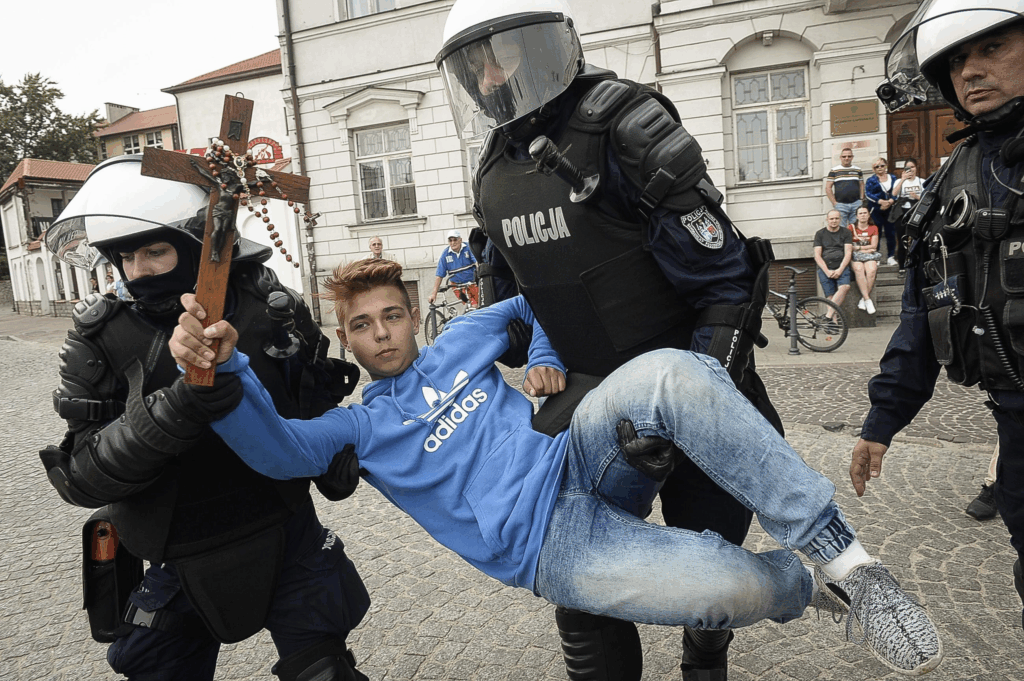
I know that fear firsthand. My father’s family lived in Eastern Europe during the Second World War. My grandmother kept him dressed in winter clothes even indoors, because she knew the knock could come at any moment — and the train to Siberian gulags would not wait for anyone to pack. By the grace of God, they escaped and made it to American-controlled DP camps.
That’s why Jakub’s story is not just news to me. It’s a warning. The machinery that once wore the hammer and sickle now marches under different banners. The slogans change. The flags change. The knock on the door stays the same.
Print this. Hand it to your parish youth group. Show it to boys wondering if they matter against the machinery of the age. The Gospel ends with a command—take up your cross daily and follow. In Płock, one boy did. One crucifix on one street stopped the march.
— Wolfshead

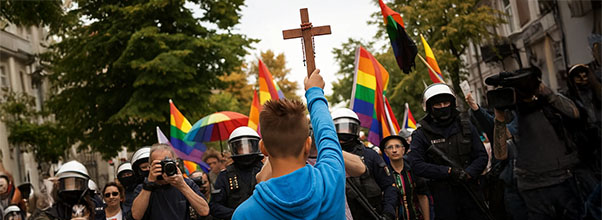
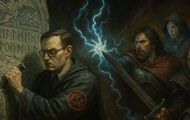


What an amazing young man! A shining example of courage and faith for everyone. No wonder that they try to smear him and his family! Best wishes to him, he deserves even more recognition.
This already started decades ago, when I was still young. Not only in Poland, USA or Germany: Christians were seen as “kinda backward, conservative”. Faith itself was mocked. People believing in fantasy stories.
I also believed that for a while. I was born and raised in such a society. But freedom and liberty, humanism, also existed. This also influenced me.
So it is no wonder that I found it odd how much atheists loved to mock, pain and belittle Christians. How socialists claimed innocence and called everyone else very bad things.
I did not become a “Fellow Traveller”. I dodged a bullet…
This is what is frightening me: The whole system, the whole of society is guiding people away from faith and freedom. Everywhere in the West. From the very get go, in pre-school already, on TV, in video games and on the internet. Leave it to Universities to twist people completely upside down after that preparation… till they no longer even know if they are man or woman.
Islam and Communism seems like such an unlikely pair, but both are destructive, stupid and evil. So they are apparently a natural fit.